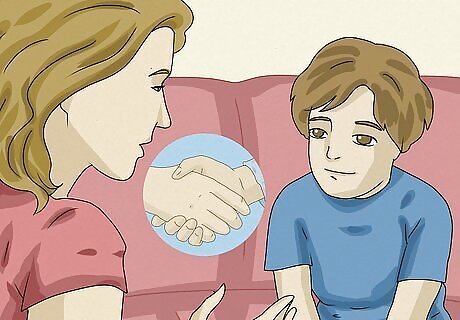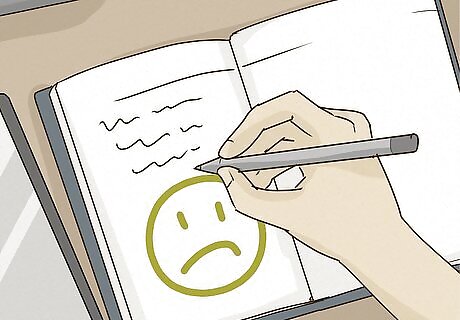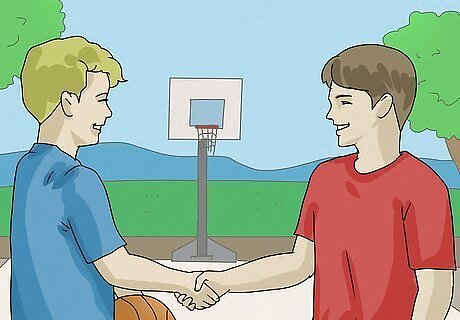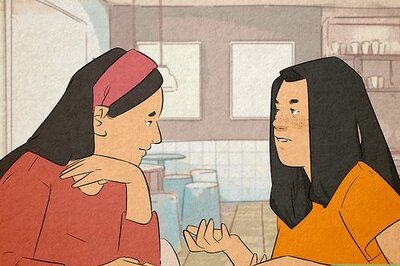
views
- A sore loser is someone who gets very upset and blames external factors when they don't win, rather than acknowledging that they just didn’t come out on top.
- If you’re dealing with a sore loser in your life, talking things out with them and teaching them about good sportsmanship may help.
- If you tend to be a sore loser, focus on processing your disappointment in a healthy way, and work on cultivating a growth mindset.
What is a sore loser?

A sore loser is someone who becomes very angry when they don’t win. After losing a game or contest, a sore loser might show their frustration by slamming doors, arguing with referees, or complaining about how the whole thing was rigged. Instead of accepting defeat gracefully, they blame everyone else for their loss, and they don’t show good sportsmanship. Here are some examples of how this term is used in conversation: “We hosted a game night at our apartment last weekend, and Josh was being such a sore loser. He complained that the rules of the board games were stupid, and he accused everyone of cheating.” “My daughter just joined a soccer league, and she’s been a bit of a sore loser. She gets really frustrated when her team doesn’t win, and sometimes she refuses to shake hands with the other players.” “When I got the promotion over my coworker, he was definitely a sore loser. He told everyone that he was the one who deserved it, and that he only got passed over because our boss plays favorites.”
How to Deal with a Sore Loser

If your child is a sore loser, work on teaching them good sportsmanship. Whether your child plays a sport or competes in academic or artistic contests, it’s important to teach them how to be a good sport. Learning to lose gracefully is crucial to your child’s behavior development, and it sets them up to manage disappointment in a healthy way later in life. Here are some tips: Talk to your child about good sportsmanship before a game or a contest. Tell them that teamwork and playing with integrity, are more important than winning or losing. Validate your child’s feelings if they're frustrated with a loss. Tell them that it’s normal to be upset, and that it’s something we all go through. Encourage your child to process their feelings in a healthy way, whether that means talking them out with you or writing about them in a journal. Don’t compare your child to other players or peers. This can put undue pressure on them and harm their self-esteem, rather than motivating them. Praise your child, even when they lose. Point out the things they did well, and tell them that all that matters is that they did their best. When your child wins, remind them not to gloat, and encourage them to be respectful of the other players and competitors. Set an example with your own behavior. When frustrating things happen to you, model the response you’re hoping to teach your child.

If you’re a friend to a sore loser, try to talk things out with them. It can be tough to deal with a friend who gets excessively frustrated when they lose. A sore loser can easily ruin the vibe if you’re trying to have a game night, play mini golf, or go bowling with your friend group. Luckily, there are many ways you can encourage them to handle disappointment gracefully. Let them know that you’ve noticed they have a hard time when they lose, and that you’re available if they want to talk about it. Providing them this space to be vulnerable can help them process their emotions in a healthy way. Encourage them to incorporate practices like mindfulness or meditation into their routine, which can be calming and help them regulate their emotions. Remind them that losing is an inevitable part of life, and that it happens to all of us. Consider sharing a time in your life that you lost, and how you dealt with it. This may help put things into perspective for them and make them feel less alone.
How to Avoid Being a Sore Loser

Allow yourself to feel disappointed. It’s completely normal to be upset if you’ve lost—losing is frustrating! Remember, bottling up your emotions won’t help you move forward. The key is to allow yourself to feel and process them in a healthy way, so that you can let them go. Try journaling about your feelings. This helps you deal with the difficult emotions you’re having, and it can also reduce anxiety and stress.

Cultivate a growth mindset, rather than a fixed one. If you have a fixed mindset, you believe that you were born with a certain, finite set of skills and abilities. A growth mindset, on the other hand, means that you believe your abilities are always evolving and growing. With a fixed mindset, losing can be devastating because it means that you simply don’t measure up. With a growth mindset, however, losing becomes an opportunity to learn and improve. Here are some tips to develop a growth mindset: Try new things, even though you might not succeed at first. Try to see challenges as an opportunity to grow and learn new skills. Embrace imperfections, rather than beating yourself up over them. Remind yourself that you don’t need to be perfect to succeed—you simply need to do your best. Cultivate perseverance. If you don’t succeed at first, don’t get hung up on your mistakes. Pick yourself up, dust yourself off, and try again. You got this!

Practice good sportsmanship, no matter what. Good sportsmanship is an important life skill that allows us to enjoy competition in a fun, healthy way. We all get disappointed when we don’t come out on top, but it’s important to treat teammates and competitors with respect, regardless. Here are some of the hallmarks of good sportsmanship: If you win, don’t gloat. If you lose, don’t blame external factors or make up excuses. Accept the loss gracefully, and shake hands with your competitors. Don’t argue with referees of sports games or judges of competitions. Accept their rulings respectfully. Follow the rules of the game. Never try to cheat, and always play fair. Encourage teammates and fellow competitors, and celebrate their wins.


















Comments
0 comment